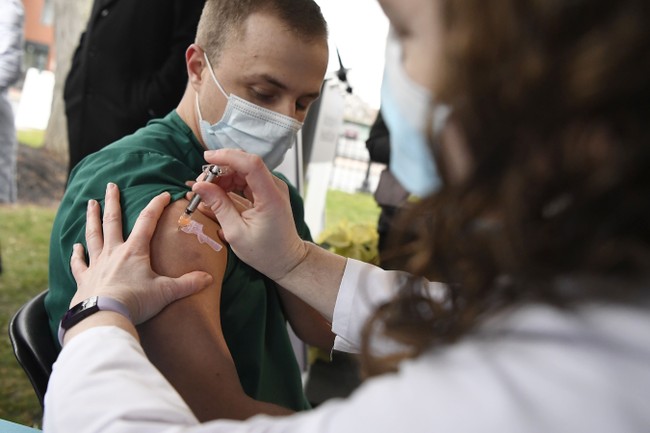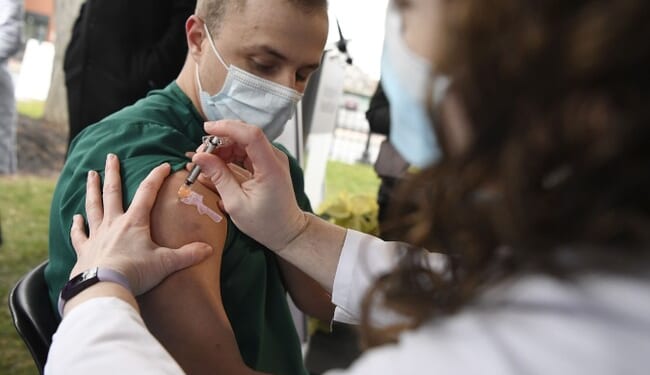
Patients at a medical facility in Massachusetts will be denied medical care in the name of fostering a “safe, caring, and inclusive environment,” according to a new policy.
The Milford Regional Medical Center, a 148-bed nonprofit acute-care facility and teaching hospital located in Milford, Mass., has cautioned individuals about refraining from using any “unwelcome words” related to race and gender, among other topics, and even body language and tone can result in the denial of service.
“Everyone should expect a safe, caring and inclusive environment in all our spaces,” Dr. Peter Smulowitz, the chief medical officer at the center, said in a video explaining the policy. “Our patient and visitor code of conduct helps us meet this goal. Words or actions that are disrespectful, racist, discriminatory, hostile, or harassing are not welcome and will not be tolerated.”
Here’s what the Patient and Visitor Code of Conduct for Milford Regional Medical Center says:
Words or actions that are disrespectful, racist, discriminatory, hostile or harassing are not welcome and will not be tolerated. Examples of these include:
- Offensive comments about others’ race, ethnicity, accent, religion, gender, sexual orientation or other personal traits
- Refusal to see a clinician or other staff member based on these personal traits
- Aggressive or intimidating behavior, physical or verbal threats and assaults
- Sexual or vulgar words or actions
- Disrupting another patient’s care or experience
Please recognize that body language and tone of voice are also important parts of communication. If we believe you have violated the Code with unwelcome words or actions, you will be given the chance to explain your point of view. We will always carefully consider your response before we make any decisions about future care at Milford Regional. Some violations of this Code may lead to patients being asked to make other plans for their care. For serious or repeated violations, future non-emergency care and visitation rights at Milford Regional may require review, though we expect this to be rare.
Individuals are encouraged to promptly report any offensive words or behaviors to the staff.
“If we believe you have violated our code with unwelcome words or actions, you will be given a chance to explain your point of view. We will always carefully consider your response before we make any decisions about future care at Milford Regional,” Smulowitz explained in the accompanying video, which was posted online on Jan. 3.
What really concerns me about this policy, aside from the fact that it empowers doctors to deny care, is that there’s quite a bit of ambiguity in the policy. It relies not only on the explicit words expressed by a patient but also on the interpretation of nonverbal communication. This introduces a level of subjectivity that raises questions about fairness and potential misuse.
Consider the following scenario: A patient accuses another of being offensive based on something as tangible as wearing a red MAGA hat. The subjective nature of this “offense” could put the facility in a position where it has to deny care to the MAGA-hat-wearing patient in favor of the accuser, who thinks anything related to MAGA is racist and bigoted.
What if no complaint is made, but the doctor treating the patient finds the hat offensive? Will they outright deny care then, or potentially treat the patient but not provide quality care?
The policy may not have been created to deny care based on political or ideological differences, but its ambiguity and the subjectivity of those it applies to certainly make it possible.












